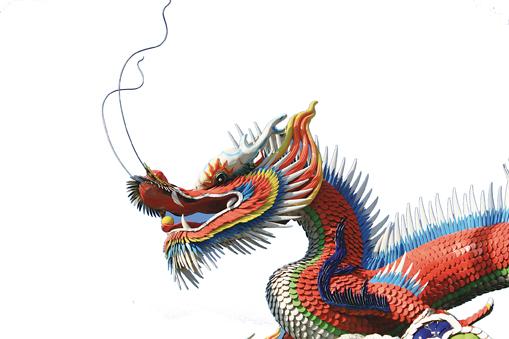Powers: More can be imported from China than toys

China has more to offer in transportation, and it could benefit U.S. imports.
January 19, 2011
As you may or may not know, China became the second largest economy in 2010 moving past Japan in terms of nominal Gross Domestic Product.
China’s economy was roughly $5.75 trillion in 2010, according to the CIA Factbook. By comparison, the U.S. economy was $14.6 trillion. If compared by Purchasing Power Parity, the U.S. was only ahead $14.7 trillion to $9.85 trillion.
The economic growth in China is going so well, approximately 10 percent growth in 2010, that the minimum wage in various parts of the country was raised in the past few months. In fact, many Chinese businesses are beginning to outsource jobs to other southeast Asian nations.
As you may see, there are many implications about the rise of “the Dragon” (China) especially considering their military’s new fighter jets.
However, I wanted to focus on their transportation system in comparison to ours and how they reflect our cultural differences.
When I visited China with my friend two years ago to visit his family, one of the things I fell in love with was the public transportation. After we got off the plane in Beijing and toured the city a little with some friends, we got on a train.
For about 160 yuan, approximately $25 — for the average Chinese person, this is a luxury — we got a ticket for a sleeper car with a place for our luggage and a bed. The “room” had six beds, three on each side — it was best to be on the top with luggage; the bottom worked too.
As I said, we got on in the evening and after sleeping through the night, woke up at our destination in the morning. It was about an 11-hour trip from Beijing to Xi’an, which is not bad for a trip that is like going from Des Moines to Denver.
We took another train or two with similar results. Though I must say eight-hour train rides overnight aren’t quite as refreshing in the morning as the longer 10- to 12-hour ones. I’m also not sure how a longer train ride, say 24 hours, would go either.
After being in the train stations waiting for trains, it seemed like this was a very popular mode of transportation. Air travel is coming along as some of my Chinese friends have said to me. It’s getting cheaper and more accessible to the masses.
However, trains still dominate. And they will continue to do into the future with the high speed trains imported from Europe. In June, a new bullet train will get people from Beijing to Shanghai in under five hours — currently it’s 10 to 18 hours for the 800-mile trip.
I think it demonstrates the collective nature of Chinese society under Communist rule. Eastern cultures by nature generally value the collective, especially with families. Communism probably only brought it more in that regard.
That stands in stark contrast to the U.S., with how much we value our individuality and independence. We drive our cars everywhere by ourselves. This practice is picking up in China, but still, it is generally only wealthier folks who can afford a car.
That’s why many of these high-speed rail projects strike me as odd. Don’t get me wrong, I would much rather take a train somewhere than drive. That way I can sleep, read or whatever and not have to deal with driving, traffic, etc.
However, I’m not sure many people really want it; they’d rather have their vehicle or not have to drive more than an hour to the nearest train station.
It would also cost a lot of money do it when many state governments and the federal government are facing deficits.
It’s an issue Iowa is currently facing. The State Legislature could invest $8.5 million to get a matching $81.4 million grant from the federal government to build high-speed rail from Iowa City to Chicago. The new Republican controlled House wants to axe it, which seemed wise to me.
That was until I read Dave Elbert‘s column Sunday in the Des Moines Register. I was very surprised to read that he, along with a Republican business leader, thought this rail project was a key investment for 21st century travel.
It seems that they think our generation would prefer rail if it can be competitive in terms of time and money to cars. I think it could also help Iowa continue toward a greener, more energy-efficient future. Maybe it’s time we imported more than toys and random junk from China.






